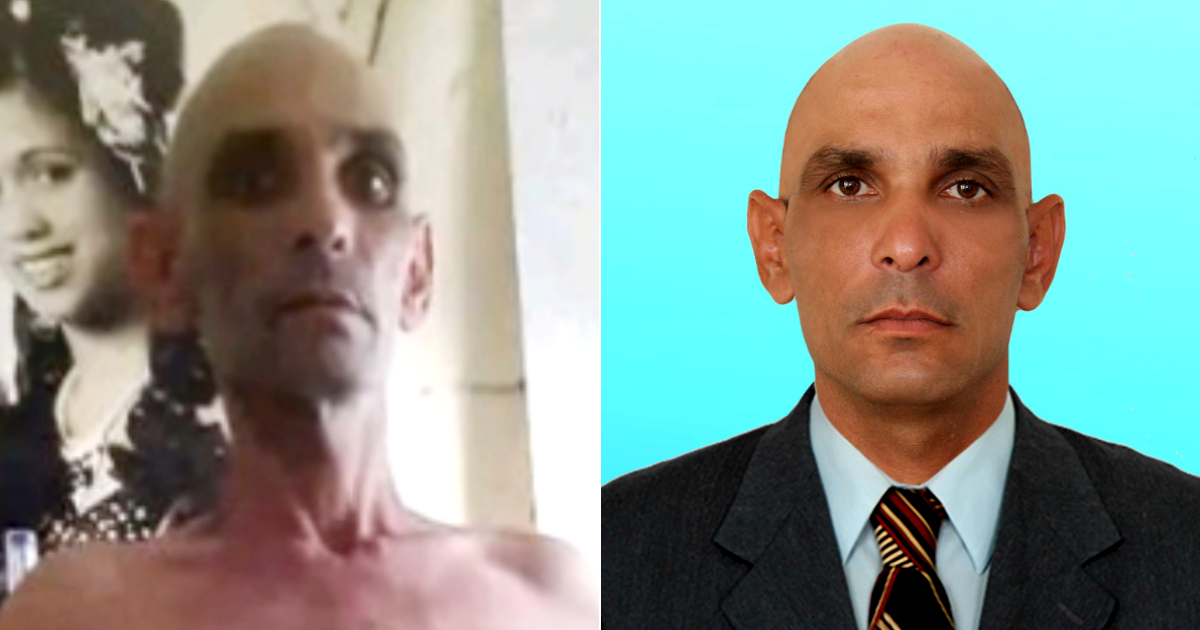In a deplorable physical state, political prisoner and 11J protester in Cuba, Carlos Michael Morales Rodríguez, was released and placed under house arrest on Monday, according to activists and independent journalists on social media.
Morales Rodríguez, who participated in the historic protests on July 11, 2021, in towns and cities across Cuba, was sentenced to two years and ten months in prison in January 2022 by the Caibarién People's Court. Alongside him, four other protesters were also tried and given unjust sentences for exercising their right to protest, as enshrined in the regime’s own Constitution.
Magdiel Rodríguez was sentenced to four years and six months; Javier Delgado Torna and José Rodríguez received three years and six months; and Isel Fumero was sentenced to two years and six months of imprisonment.
After nearly a month on a hunger strike, Morales Rodríguez was hospitalized for several days at the Arnaldo Milián Castro Provincial Clinical-Surgical Hospital in Santa Clara and was awaiting trial, as reported by Pastor Mario Félix Lleonart for ADN Cuba.
This Monday, following the trial, the political prisoner was placed under house arrest, as reported by activist Betty Guerra Perdomo, mother of 11J political prisoners, the brothers Jorge and Nadir Martín Perdomo.
As an independent journalist, Morales Rodríguez denounced the case of Ismaray Ramos Pérez in September 2019, a mother from Caibarién who was sleeping on the street with her young children due to homelessness and was subjected to the indifference and mistreatment of authorities.
“She approached the local government to ask for a place to stay with her children and was denied. They told her to give up her children so they wouldn’t live on the street, threatened to imprison her and take her children away. This was stated by the Vice President of the People's Power, Idalmis,” the journalist reported on social media.
Days after the public denunciation and social media pressure, Ramos Pérez recovered the home from which she had been evicted. “The house that her relatives had taken away, forcing her to live in rented accommodations until she ended up on the street, was returned to her by the Caibarién authorities,” Morales Rodríguez reported.
“Social media serves to fight against injustices,” said the activist, who would later protest in the streets on 11J, demanding freedom, respect for human rights, and change in Cuba alongside hundreds of thousands of Cubans.
Civil society organizations and the Cuban exile community expressed solidarity with Morales Rodríguez and repeatedly called for his release after his imprisonment. The latest of these calls took place on July 17 in Miami, after the political prisoner ended his 27-day hunger strike.
This Monday, after being released from prison, images shared on social media showed Morales Rodríguez in an extremely thin state, a result of his protest and the poor conditions endured by the Cuban prison population (one of the highest in the world), including the thousands of political prisoners still held by the totalitarian regime.
Key Questions About Carlos Michael Morales Rodríguez's Release
In light of Carlos Michael Morales Rodríguez's recent release under house arrest, many questions have arisen regarding his health, the conditions of his imprisonment, and the broader implications for political prisoners in Cuba. Here are some key questions and answers to provide more context.
What was Carlos Michael Morales Rodríguez's condition upon release?
Carlos Michael Morales Rodríguez was in a visibly poor physical state, extremely thin, likely due to his hunger strike and the harsh conditions in Cuban prisons.
Why was Morales Rodríguez placed under house arrest?
Morales Rodríguez was placed under house arrest following a trial, though the reasons behind this decision were not fully disclosed. Activists speculate it may be due to his deteriorating health condition.
How did social media influence the case of Ismaray Ramos Pérez?
The public denunciation and subsequent social media pressure led to the authorities in Caibarién returning the home from which Ismaray Ramos Pérez had been evicted, illustrating the power of social media in fighting injustices.
